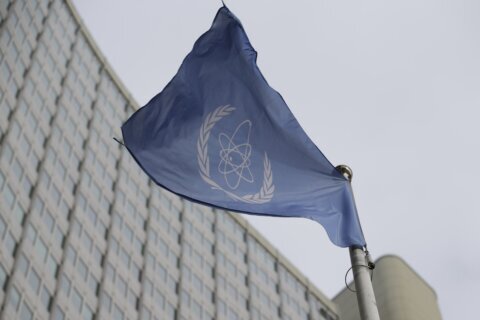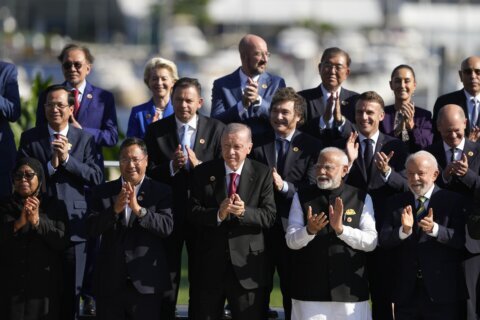CAIRO (AP) — Famine conditions have spread in Sudan in the North Darfur region and are likely to continue through October due to the ongoing conflict that has torn the country for over 15 months, a global authority on food security warned Thursday.
The Integrated Food Security Phase Classification, or IPC’s report found that it is plausible that parts of North Darfur — especially the Zamzam camp — are experiencing “the worst form of hunger” known as IPC Phase 5.
The IPC Partnership comprises more than a dozen U.N. agencies, aid groups, and governments that use the IPC as a global reference for analysis of food and nutrition crises.
IPC Phase 5 is determined in areas where at least one in five people or households severely lack food and face starvation and destitution, which would ultimately lead to critical levels of acute malnutrition and death.
Sudan plunged into war when fighting began over a year ago between the military and a powerful paramilitary group, the Rapid Support Forces or RSF. As a result of fighting in the capital, Khartoum, the military leadership largely operates out of eastern Sudan near the Red Sea Coast.
The conflict has pushed people into starvation and created the world’s largest displacement crisis with more than 10 million people forced to flee their homes since April 2023, according to the U.N. migration agency. Over two million of whom fled to neighboring countries.
In May, the WFP said in a report that at least 1.7 million people were already experiencing emergency levels of hunger in Darfur, including in Al Fasher, the capital of North Darfur state that is besieged by RSF.
Famine conditions have prevailed as of June and July in Zamam camp, 12 km south of Al Fasher —the capital of North Darfur — where internally displaced people are living, according to the IPC report.
“The FRC found that two out of three critical requirements to classify Famine — acute malnutrition and mortality rates — have been surpassed, confirming Famine, based on reasonable evidence,” the report said, adding that there is a high-risk such conditions persist beyond October in Zamzam camp if the conflict continues.
Similar conditions could also affect parts of the Al Fasher area, particularly the Abu Shouk and Al Salam camps, but the size of affected populations and their food security and health status are yet to be assessed and determined.
The Famine Early Warning Systems Network or FEWS NET Thursday echoed the IPC report, saying that there is “reasonable evidence” that famine thresholds were passed in June in the Zamzam camp. However, FEWS added that such evidence is limited and therefore it’s hard to confirm or deny this classification, and that displaced people there are experiencing starvation.
The IPC said the famine conditions in Zamzam camp were fueled by the conflict and “severely restricted humanitarian access.”
Around 320,000 people are believed to have been displaced in Al Fasher since mid-April, according to the IPC, at least 150,000 of which are believed to have moved to Zamzam camp by May to find life necessities. That population in the camp expanded to more than half a million in a few weeks.
“The available data on acute malnutrition in Zamzam camp from January 2024 revealed malnutrition rates exceeding the IPC Famine threshold,” the IPC said of its July analysis of Zamzam camp.
Another IPC report in July said that 755,000 people face IPC Phase 5 in 10 states, five of which are in the Greater Darfur region, North Kordofan, Gezeira, and Khartoum.
The United States and Saudi Arabia have invited the two sides for ceasefire talks in Switzerland in August. The RSF leader said it planned to attend, while the military-controlled Sudanese government stated that any negotiation before implementing the Jeddah Declaration “wouldn’t be acceptable to the Sudanese people.”
The Jeddah Declaration of Commitment to Protect Civilians passed last year meant to end the conflict, but neither side committed to its objectives.
Representatives from the Sudanese Army and the RSF, led by Mohamed Hamadan Dagalo, engaged in revived talks brokered by the U.S. and Saudi Arabia in Jeddah, focusing on the delivery of humanitarian aid, achieving ceasefires and paving the way toward a permanent cessation of aggression, among other objectives.
“We know starvation is widespread among displaced populations in Al Fasher, where around half a million people are currently sheltering,” FEWS NET Decision Support Advisor Lark Walters said in a press release Thursday, adding that “without an end to this conflict, and in the absence of large-scale humanitarian food assistance, extreme human suffering will persist.”
Copyright © 2024 The Associated Press. All rights reserved. This material may not be published, broadcast, written or redistributed.







